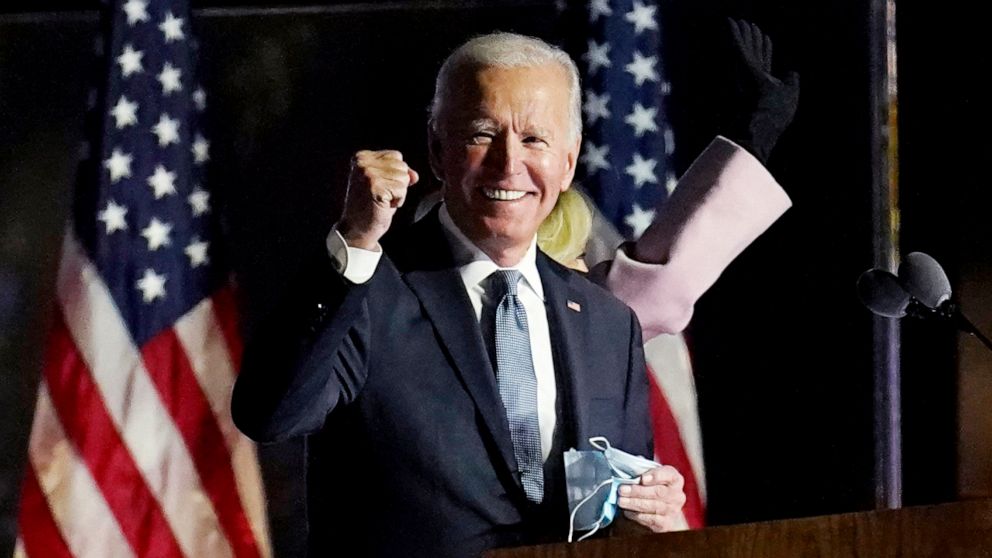Biden's 1st 100 days: Promises kept, broken, or in progress
When President Joe Biden took his oath over three months ago, he assumed responsibility for a set of unprecedented challenges ranging from a global pandemic, an economic crisis and a nation reeling from political and racial divisions.
As a candidate and incoming president, he had promised a series of swift and sweeping actions to address the range of challenges he inherited.
As he now approaches his 100th day in office on Thursday, here's a look at how Biden is measuring up in meeting some of the markers he laid out for the start of his presidency.
"It's a matter of timing," Biden told reporters last month, explaining his approach to governing. "As you've all observed, successful presidents -- better than me -- have been successful, in large part, because they know how to time what they're doing -- order it, decide and prioritize what needs to be done."
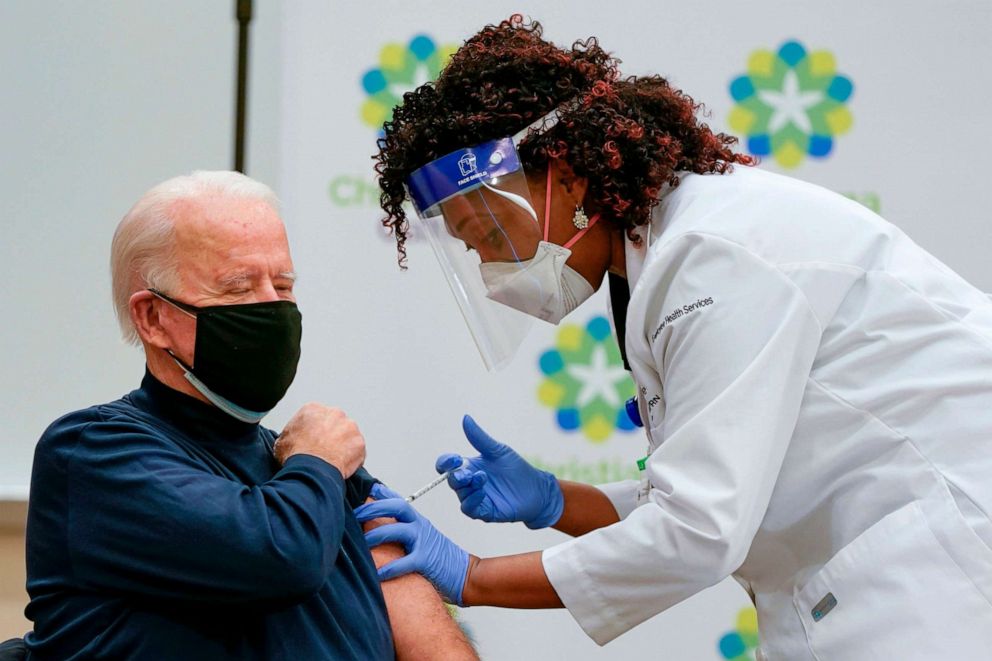
COVID-19
The promise: Pass COVID-19 relief package to get Americans through the economic crisis
Status: Kept
Throughout 2020, Biden laid out his vision for combatting the COVID-19 pandemic and helping Americans emerge from the economic crisis.
Once taking office, he formally unveiled a relief package he called the "American Rescue Plan," which became the blueprint for coronavirus relief legislation.
Among the promises Biden made on the campaign trail were stimulus checks, funding for schools to implement safety measures and reopen, small business funding, and money for vaccinations, testing, and contact tracing.
All of these items were included in the $1.9 trillion package that ultimately became law after Congress passed it and, on March 11, Biden signed into law.
But Biden did fail on one pledge: He said he would secure bipartisan support for the measure, but he ultimately failed to persuade a single Republican lawmaker to vote for it.
The promise: 100 million COVID-19 vaccine shots in 100 days
Status: Kept
In December, Biden set a goal that 100 million COVID-19 vaccine doses would be administered in his first 100 days in office.
But by the time he assumed the presidency, the United States was already administering around a million shots a day on average. And with the effort ramping up, it was clear Biden would very likely achieve his goal early -- in large part thanks to actions taken under the previous administration.
Pharmaceutical companies began to flood the system with more doses, and a third vaccine gained emergency-use authorization from the Food and Drug Administration. The Biden administration secured hundreds of millions more doses and opened up more vaccination sites, at pharmacies and via mobile vaccination units.
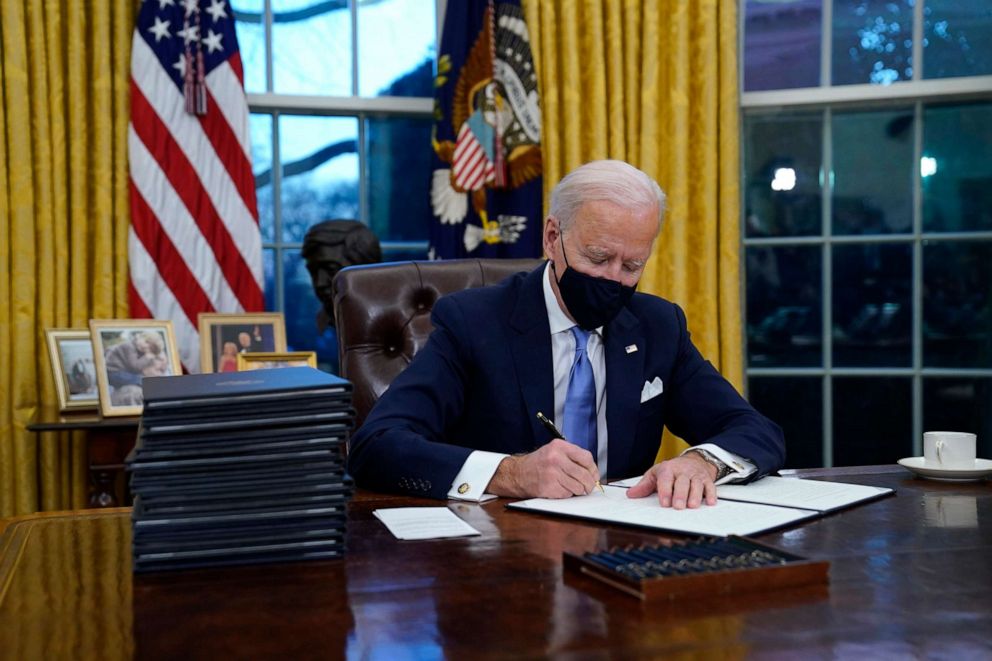
The U.S. reached 100 million shots in Biden's Day 59, and one week later, the president doubled his goal to 200 million shots by his 100th day.
On Wednesday, on Day 92, he announced the U.S. had reached that milestone, too -- eight days early.
The promise: Ensure 'a majority of our schools can be open'
"If Congress provides the funding we need to protect students, educators and staff, if states and cities put strong public health measures in place that we all follow," Biden said in December, "then my team will work to see that a majority of our schools can be open by the end of my first 100 days."
Status: In progress
Since Biden took office, Congress did allocate hundreds of billions of dollars for schools, and many states and cities have adopted health measures in line with newly updated guidance from the Centers for Disease Control and Prevention.
But Biden was vague about what he meant by "open" -- whether full time or part time -- and the White House has similarly shifted the goalposts.
A White House spokesman noted that the most recently available survey data from the U.S. Department of Education, released on April 7 and covering the month of February, found that 49% of schools that had fourth grade (elementary schools) or eighth grade (middle schools) offered full-time, in-person learning -- meeting the White House's definition of "open."
So in other words, in February, nearly a majority of schools were "open," by the White House's definition.
But having that option did not mean all students were actually utilizing it.
Of the 46% of public school students who were being offered full-time, in-person learning, many were still learning online, at least part of the week. Only 29% of eighth graders and 39% of fourth graders were attending school full-time in-person in February, according to the survey.
Asked Monday by ABC News whether Biden would still consider his goal met, even if the available data did not show that at least half of American students were actually attending school in person, full time, White House press secretary Jen Psaki did not say.
"We've seen, across communities and states, there's been a significant amount of progress of schools opening five days a week, of students being in school learning," Psaki told ABC News' Karen Travers. "Now, some school districts have given the option of school -- of students, if their parents choose, to stay remote. That is, in some school districts, the option they've chosen."
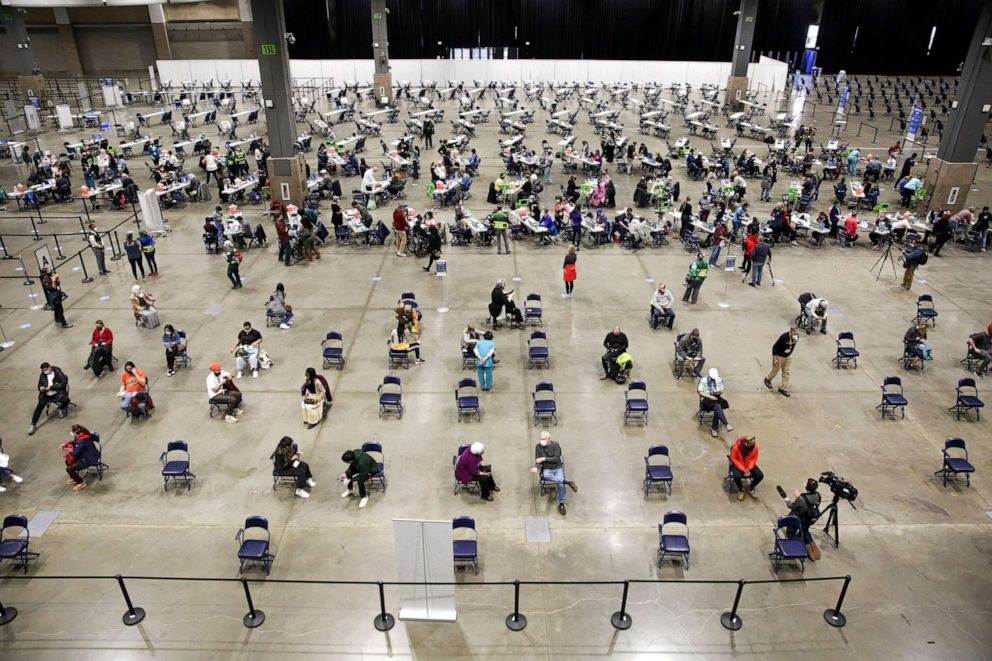
The promise: Encourage masks, require them where he had the power to do so
Status: Kept
Biden pledged to sign an executive order on Day One to require masks where he had the legal power to do so, including in "federal buildings" and during "interstate travel on planes, trains and buses."
He followed through on that promise, signing that order within hours of becoming president.
Biden also said he would encourage Americans to wear masks for 100 days and would work with governors and mayors to mandate masks, as well.
Biden has done both, repeatedly wearing a face covering himself -- unlike his predecessor, former President Donald Trump -- and explicitly calling on Americans to do the same. He's also encouraged state and local mandates, although it's not clear what type of pressure he's exerted on governors and mayors to enact them.
Climate and foreign affairs
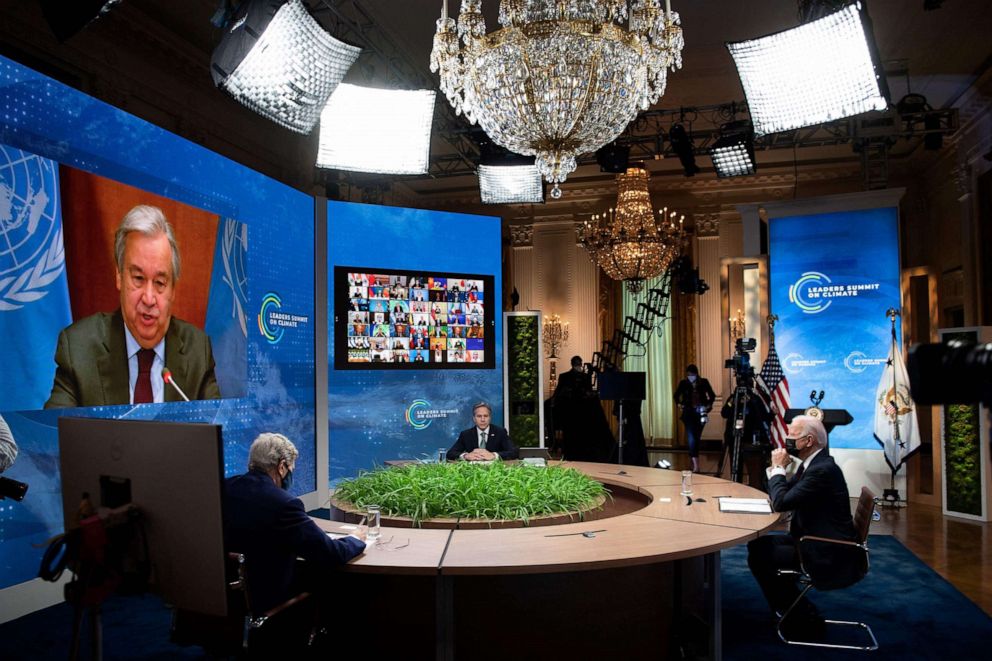
The promise: Rejoin international organizations, reenter international agreements
Status: Kept / in progress
Biden's foreign policy platform was predicated on faith in international institutions and the strength of multilateralism. To that end, he promised to reverse what he saw as the retreat from the global stage that took place under Trump.
So, as promised, he ended a process Trump had started -- to remove the U.S. from the World Health Organization. And he returned the United States to the Paris climate accord after Trump pulled out.
Biden also pledged to return to the Iran nuclear deal, known as the Joint Comprehensive Plan of Action. His administration jump started talks on the matter, but so far has not come to an agreement that would bring both the U.S. and Iran back into compliance.
And last week, the White House said Biden's first trip abroad as president, in June, would take him to the United Kingdom and Belgium for summits with leaders from NATO, the European Union and the "Group of Seven" industrialized nations.
The trip, the White House said, would "highlight his commitment to restoring our alliances, revitalizing the Transatlantic relationship, and working in close cooperation with our allies and multilateral partners to address global challenges and better secure America's interests."

The promise: Make climate change a national priority
Status: Kept / in progress
Returning the United States to the Paris accord on climate change on his first day in office sent a signal the Biden saw climate change as one of the primary crises he said he believed the country faced.
It was a stark contrast with his predecessor, Trump, who minimized the importance of climate change and the role of science in general.
Biden signed executive actions that elevated the importance of science in federal policymaking and that called on federal agencies to make climate change and environmental justice a priority in domestic and foreign policy decision-making. He created several senior positions and established a prominent Office of Domestic Climate Policy at the White House.
Last week, he fulfilled a pledge to bring world leaders together to discuss climate change. He has also blocked the Keystone XL oil pipeline from becoming a reality and stopped drilling in the Arctic National Wildlife Refuge.
And a sweeping infrastructure plan he proposed last month included significant investments in a green energy grid, electric vehicles and climate-resilient infrastructure.
Other longer-term goals remain in progress, though, such as putting forward a plan to conserve 30% of American lands and waters by 2030 and making progress on curbing hydrofluorocarbon greenhouse gases.
Immigration

The promise: Stop construction of southern border wall
Status: Largely kept
Biden promised to stop construction of new wall on the southern border after Trump failed to complete what he championed there.
On Biden's first day in office, he signed a proclamation to "pause work" on the wall and redirect unspent funds that had been set aside for its construction. Workers abandoned construction equipment in some places and left large gaps in the barrier.
The president also launched a 60-day review that a White House official said remains ongoing.
But the U.S. secretary of homeland security, Alejandro Mayorkas, recently told agency employees that construction may resume to plug some of the "gaps" along the wall, according to The Washington Times. Agency spokespeople did not respond to questions about the secretary's reported comments and about areas where construction is continuing.
"There is some limited construction that has been funded and allocated for," Psaki said on April 6. "But it is otherwise paused."
Biden had also said that his administration would "withdraw the lawsuits" the federal government used to try to seize land along the border. But it has not actually done so.
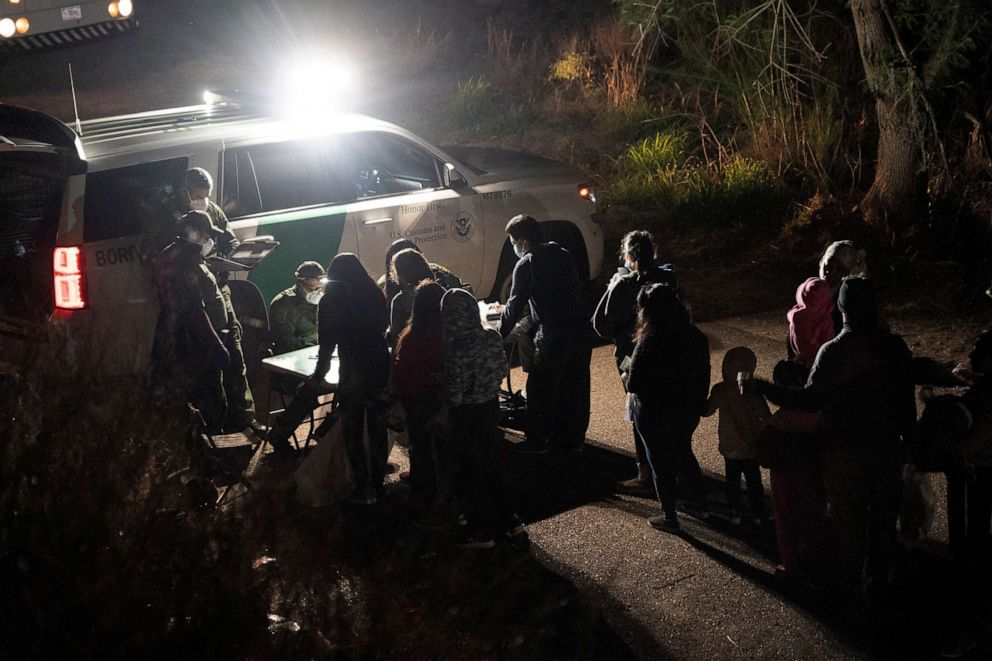
The promise: Reverse Trump's strict immigration policies
Status: In progress
Biden has struggled to untangle the web of hardline immigration policies enacted by his predecessor.
As promised, on his first day in office, he ended Trump's "Muslim travel ban" that prevented people from traveling from several Muslim-majority countries to the United States -- and weeks later, he sent an immigration reform plan to Congress that proposed a pathway to citizenship for the 11 million undocumented immigrants in the United States -- another pledge fulfilled.
Biden also returned deportation priorities to the status quo in the Obama administration, which focused on people who committed crimes other than entering the country illegally. And on his first day, he threw his support behind the Deferred Action for Childhood Arrivals program that allows people who came to the U.S. as children, undocumented, to stay in the country.
But a court blocked his plan to freeze deportations for 100 days.
Meanwhile, Biden formed a task force to reunite migrant families the Trump administration tore apart, but it has yet to bring together even one family so far.
He has kept in place a pandemic-era restriction know as "Title 42" under which most migrants who are caught crossing the border illegally are rapidly returned to Mexico or elsewhere. Although he has allowed unaccompanied minors, many arriving as part of a recent influx, to stay.
And so far, his reviews of the "public charge" rule -- which makes it difficult for undocumented immigrants to receive public benefits -- and how to streamline the naturalization system have not resulted in significant change.
Policing and guns
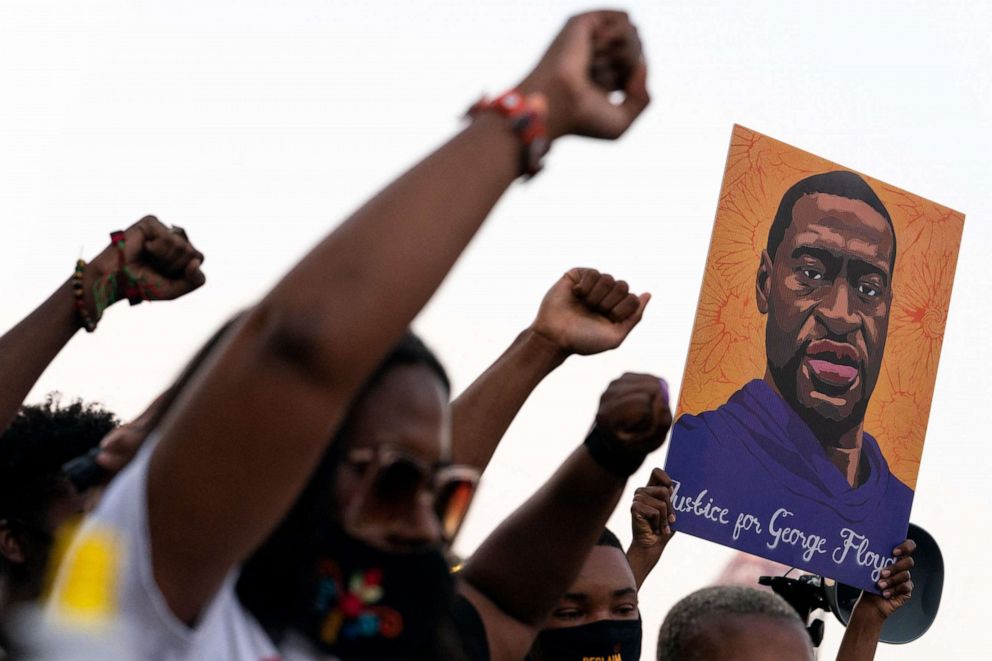
The promise: Create police oversight commission
Status: Not kept
In June, about one week after George Floyd's death while in Minneapolis police custody, Biden vowed to create a national police oversight commission within the first 100 days of his administration, to study paths for police reform.
"We need each and every police department in the country to undertake a comprehensive review of their hiring, their training, their de-escalation," Biden said in Philadelphia.
The Biden White House, however, frequently highlighted its support for the George Floyd Justice in Policing Act, passed by the House of Representatives in early March, rather than announcing the creation of the commission.
On April 12, White House Domestic Policy Adviser Susan Rice said the White House was officially scrapping any plans for a commission.
"Based on close, respectful consultation with partners in the civil rights community, the administration made the considered judgment that a police commission, at this time, would not be the most effective way to deliver on our top priority in this area, which is to sign the George Floyd Justice in Policing Act into law," Rice said.
Both the Obama and the Trump administrations had formed commissions to study police reform and oversight, but neither commission led to any measurable change.
The promise: Send bill to Congress repealing liability protection for gun manufacturers, closing background check loopholes and instituting a waiting period
Status: Not Kept
President Biden often touted his credentials on guns during his campaign, highlighting his work to get assault weapons banned for 10 years as part of the Violence Against Women Act, and promising he would once again take action on guns right away.
"On my first day of office," Biden said in February 2020, "I'm going to send a bill to the Congress repealing the liability protection for gun manufacturers, closing the background check loopholes and waiting period."
But he has not yet sent any gun legislation to Congress.
Instead, the White House has advocated for lawmakers to act on legislation addressing the background check system.
Biden did take six gun-related executive actions on April 8, including directing the Department of Justice to issue a proposed rule to regulate the sale of so-called "ghost guns" within 30 days, calling for investments in evidence-based community violence intervention and asking the Justice Department to publish model "red flag" legislation for states within 60 days.
But those actions did not cover his Day One pledge.
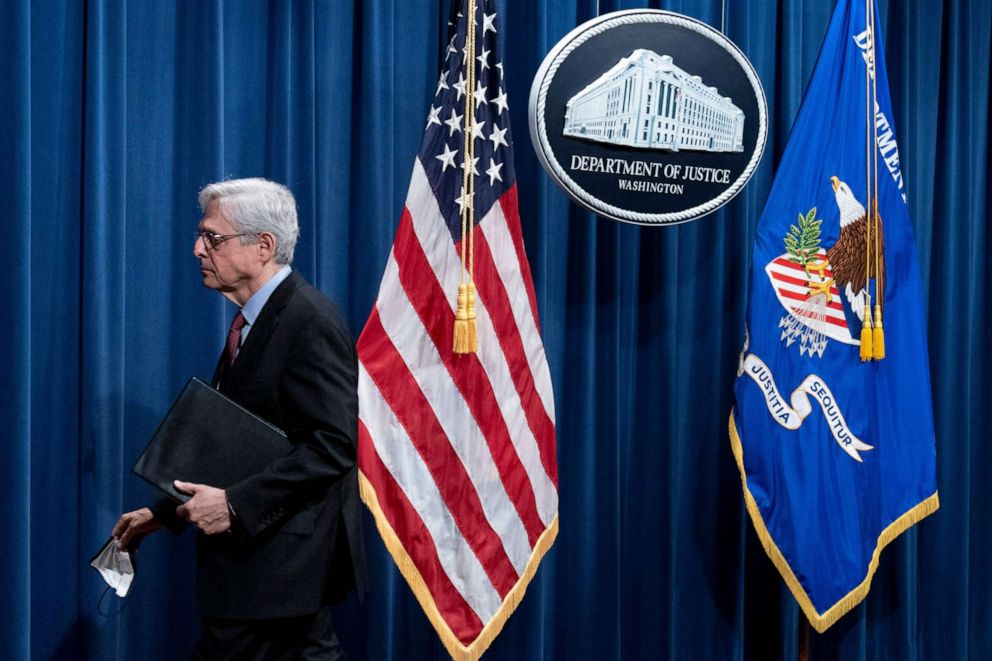
The economy
The promise: Propose an infrastructure spending plan
Status: Kept
In January, Biden said that the following month -- during an address to Congress -- he would "lay out" the second part of a "two-step plan to build a bridge to the other side of the crises we face and to a better, stronger, more secure America."
The first step was his COVID-19 relief package, which he signed into law last month. The second, he said in January, was his "Build Back Better Recovery Plan."
"It will make historic investments in infrastructure and manufacturing, innovation, research and development, and clean energy," Biden said. "Investments in the caregiving economy and in skills and training needed by our workers to compete and win the global economy of the future."
Even though his first address to Congress was delayed until later this week, the president did unveil a sweeping infrastructure spending proposal that includes investments in the buckets he mentioned in January. He broke up the plan into two parts -- a $1.9 trillion "American Jobs Plan" he rolled out late last month -- and an "American Families Plan" the White House has said will come by the end of April.
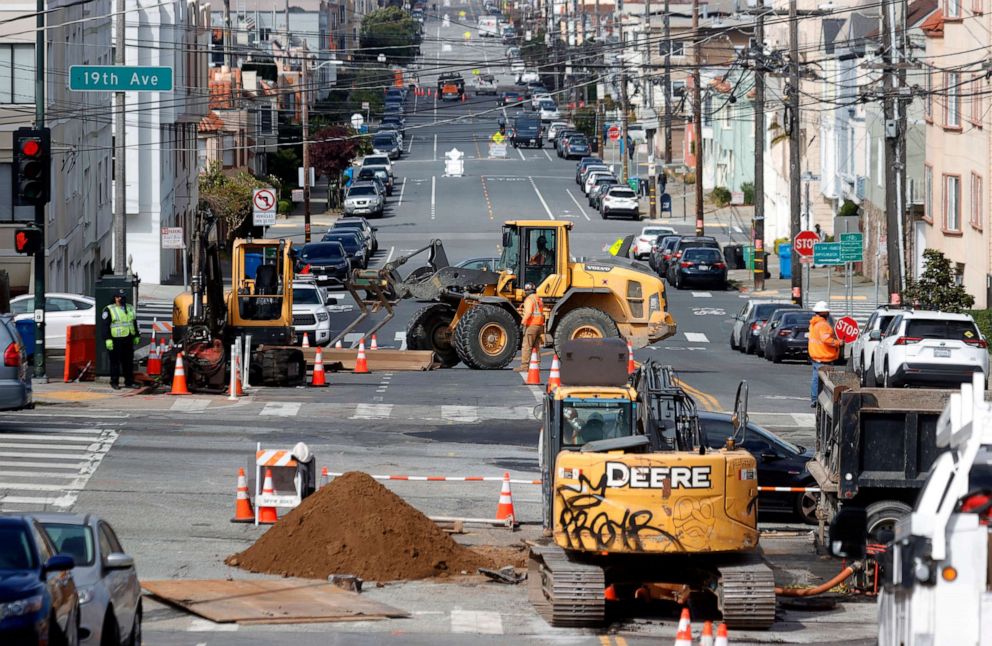
The promise: Pause foreclosures, evictions
Status: Kept
Biden said he would extend a pandemic-era pause on evictions and foreclosures.
On his first day in office, he asked several federal agencies to do just that.
The Centers for Disease Control and Prevention extended an eviction moratorium until March 31, then extended it again until June 30.
Several other federal agencies extended the prohibition on foreclosures against federally guaranteed mortgages until March 31; they, too, extended it again until June 30.
The promise: Extend student loan repayment pause
Status: Kept
Before taking office, Biden's transition advisers said that he planned to extend an existing pause on federal student loan repayments amid the continued COVID-19 pandemic.
As part of his flurry of executive actions during his first day in office, Biden did just that, calling on the Department of Education to extend the freeze on the payments until September 30, a request the department immediately carried out.
"Too many Americans are struggling to pay for basic necessities and to provide for their families," the department said in a statement then. "They should not be forced to choose between paying their student loans and putting food on the table."
Equality and racial justice
The promise: Make protections for LGBTQ Americans a top legislative priority
Status: Not kept
Biden pledged on the campaign trail to make passing the Equality Act into law a top legislative priority in his first 100 days. The act would amend the 1964 Civil Rights act to prohibit discrimination based on gender identity or sexual orientation.
Since taking office, Biden has urged its swift passage. "It's time for Congress to secure these protections once and for all by passing the Equality Act — because no one should ever face discrimination or live in fear because of who they are or whom they love," he said in a statement in February.
The House of Representatives passed the bill on Feb. 25, but it's now languishing in the Senate, where some Republicans oppose it, saying it could infringe on religious liberties.
But Biden has made passage of COVID-19 relief and a major infrastructure plan his top legislative priorities thus far, not spending much political capital to urge the evenly divided Senate to take up the Equality Act.
Biden did sign an executive order during his first week in office aimed at enforcing the protections LGBTQ Americans already have under law, but part of it is already tied up in a legal challenge from a private Christian college.
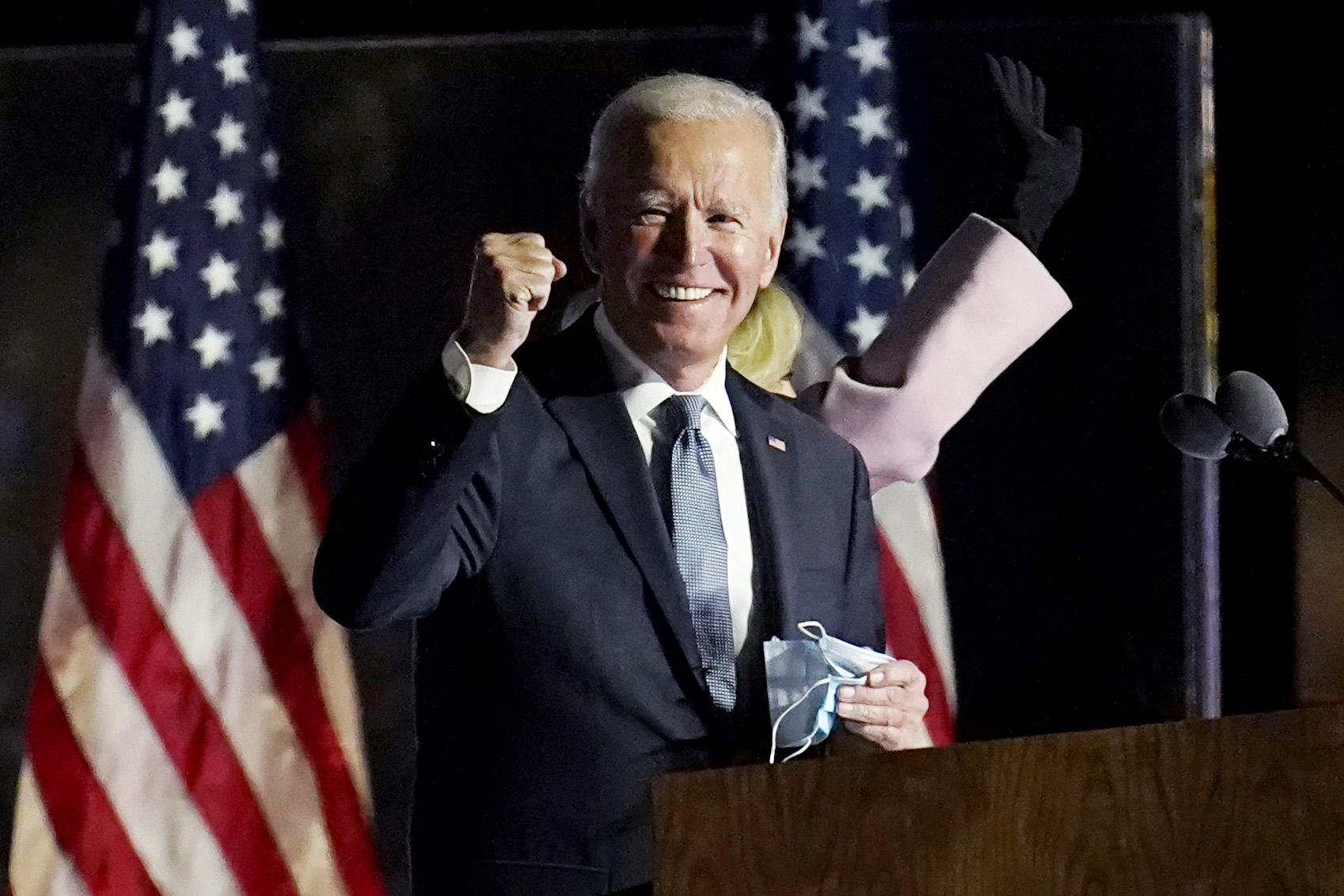
The promise: End transgender military ban
Status: Kept
Trump abruptly tweeted in July 2017 that he had decided to ban transgender Americans from serving in the military. On the 2020 campaign trail, Biden vowed to overturn the ban, saying it was "not just the right thing to do, but it's in our national interest."
On his sixth day in office, Biden made good on his promise, signing an executive order restoring the ability of transgender Americans to serve.
"What I'm doing is enabling all qualified Americans to serve their country in uniform," Biden said as he signed the order. LGBTQ advocacy groups praised his swift action.
The promise: Address systemic racism in housing, criminal justice, voting rights
Status: Kept / in progress
On Jan. 26, Biden signed four executive actions to address racial equity – dealing with discrimination against Asian Americans and Pacific Islanders, strengthening tribal relations, reinstating an Obama-era anti-housing discrimination rule that Trump had rolled back and ending the Justice Department's use of private prisons.
Biden had promised to update the Voting Rights Act to prevent Americans from being denied the right to vote based on race, and as president he's made repeated calls for Congress to move it forward.
"I once again urge Congress to pass the For the People Act and the John Lewis Voting Rights Advancement Act to make it easier for all eligible Americans access the ballot box and prevent attacks on the sacred right to vote," he said in a statement on March 26, in response to a restrictive election law passed in Georgia.
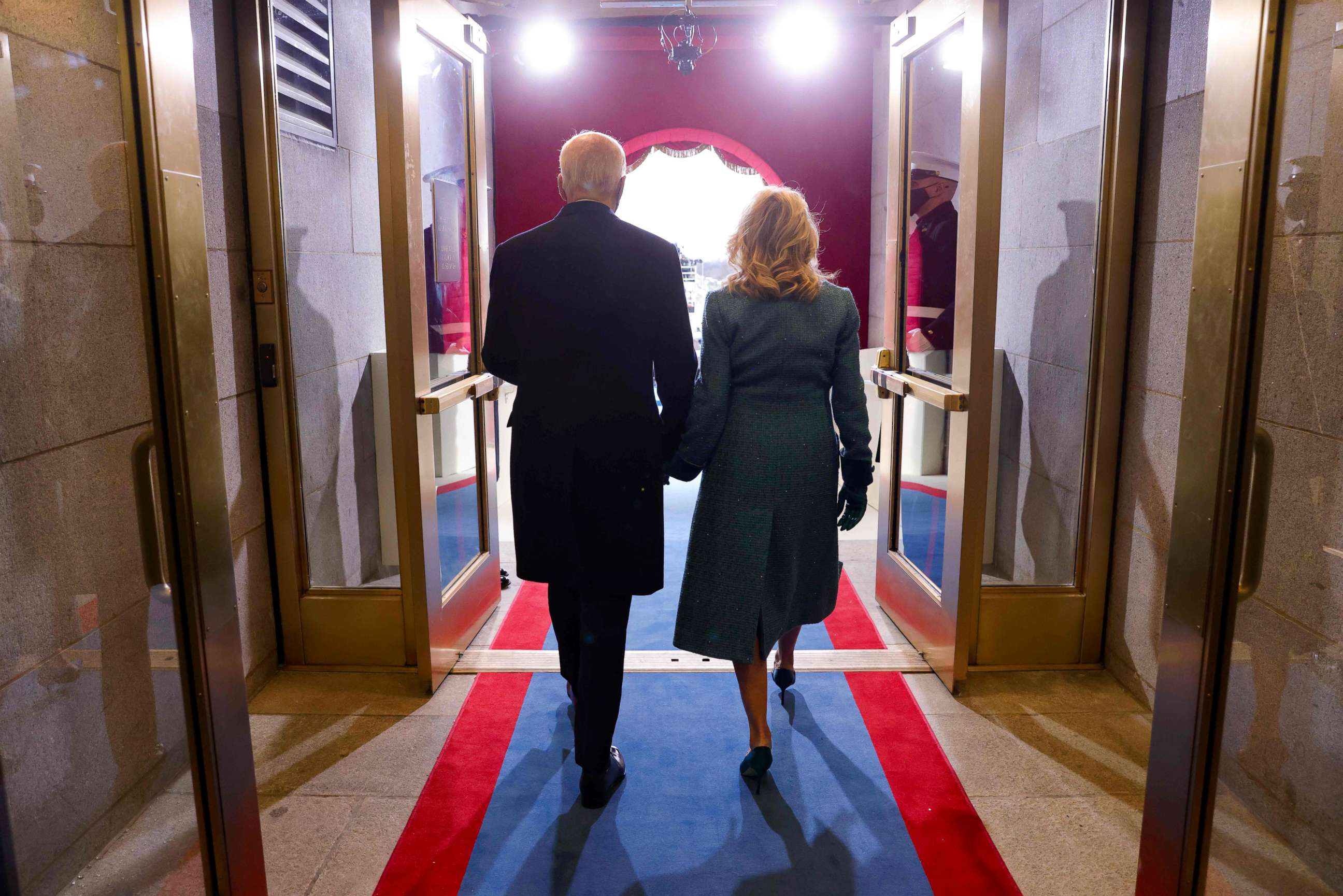
The promise: Create a Cabinet that 'looks like America'
Status: Kept
Biden campaigned on a pledge to assemble a team that "looks like America."
He has fulfilled that promise, forming a Cabinet is the most diverse in U.S. history.
Transportation Secretary Pete Buttigieg is the first openly gay person to be confirmed by the Senate to a Cabinet position, Janet Yellen is the nation's first female treasury secretary, Deb Haaland became the first Native American interior secretary, Alejandro Mayorkas is the first immigrant to head the Department of Homeland Security and Lloyd Austin is the first Black defense secretary.
There are more women serving in Biden's Cabinet than any other recent administration and more than half are people of color.
Governing and ethics
The promise: Raise ethical standards
Status: In progress
On the campaign trail, Biden promised to raise the White House's ethical standards following four years of Trump officials pushing the limits.
One of Biden's first executive orders in office was to require all federal government employees to sign an ethics pledge "designed to ensure that executive branch employees act in the interest of the American people and not for personal gain," including preventing federal employees from interfering with independent Department of Justice probes.
The Biden White House has also started to release personal financial disclosure forms and has committed to releasing quarterly visitor logs, which the Obama administration began and Trump stopped.
As a candidate, Biden said he would introduce a constitutional amendment to entirely eliminate private dollars from federal elections and other campaign finance reforms, and establish a Commission on Federal Ethics. His administration has yet to move forward on these pledges.
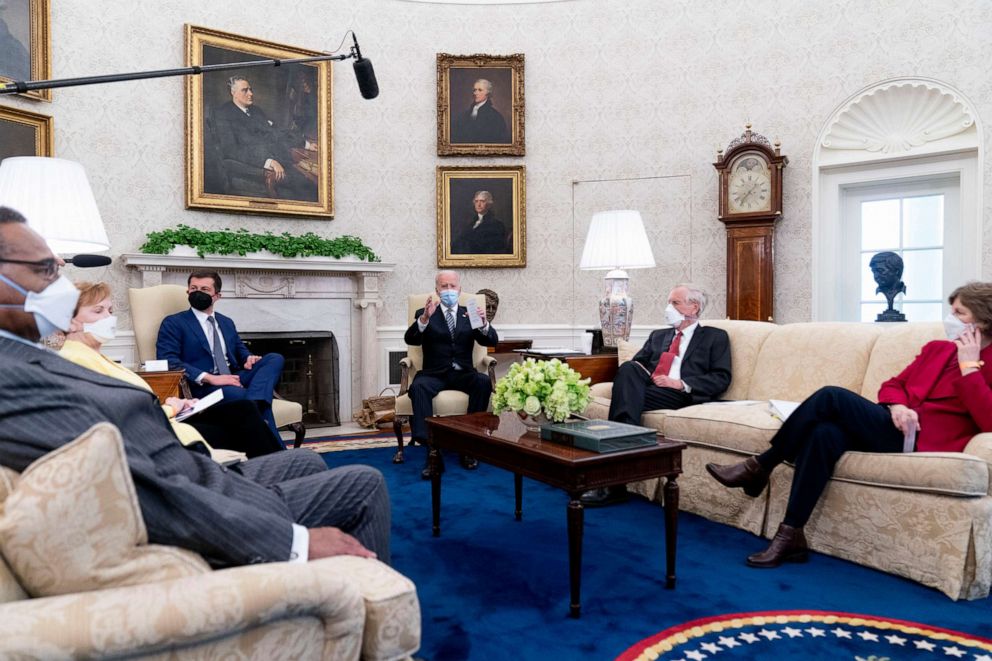
The promise: Work across the aisle to find bipartisan compromise
Status: In progress
While not an explicit 100-day promise, during his presidential campaign, Biden touted his past bipartisan work and pledged that he would do the same as president.
"There's going to be, I promise you, between four and eight Republican senators who are willing to -- going to be willing to move on things where there's bipartisan consensus," Biden said during an ABC town hall in October.
But Biden's first two major legislative undertakings are proving just how difficult achieving that bipartisan consensus may be.
His first Oval Office meeting was with a group of Senate Republicans to discuss possible compromises around his first legislative agenda item -- a $1.9 trillion COVID-19 relief bill.
However, the White House plowed ahead on the measure, narrowly passing it without a single Republican vote -- drawing the ire of some who questioned how open Biden actually was to compromise.
The White House defended its decision to move ahead, citing the need to get relief to Americans ahead of looming expiration dates to critical benefits like expanded unemployment insurance.
Now, as Biden sets his sights on a $2.3 trillion infrastructure proposal, he has expressed a willingness to compromise and has so far held two Oval Office meetings on the plan with Republican and Democratic lawmakers.
"I am prepared to compromise, prepared to see what we can do and what we can get together on," Biden said Monday at the start of one of the meetings.
But the White House has set deadlines, saying it wants to see "significant progress" by Memorial Day, and the measure passed over the summer.
Jordyn Phelps, Anne Flaherty and Benjamin Siegel contributed to this report.
